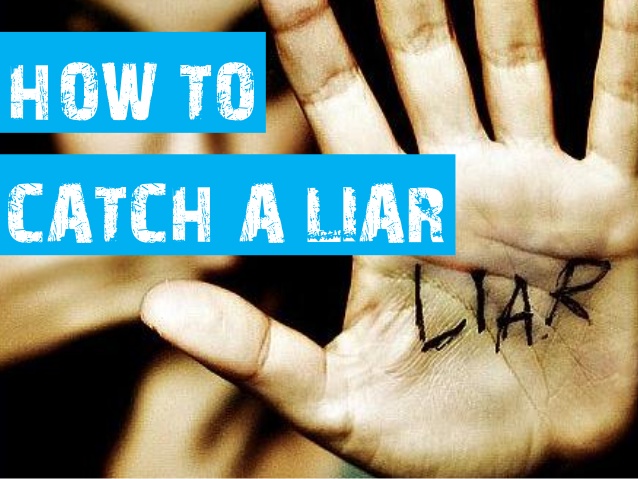
Do you ever wish you were better at spotting a liar? Do you have trouble trusting your teen, spouse, or employee? Here’s some info that will help you be a better lie detector!
It takes a lot more mental effort to lie than it does to tell the truth because it’s hard work to remember all the details of the lies. This fact can help us catch a lie if we know what to look for.
Psychologist Jacqueline Evans of the University of Texas and her colleagues developed a set of lie-detecting guidelines that anyone can use. Here are six cues that, when combined, signal a lie.
- Missing Details–A person honestly recounting an event might mention the kind of music playing in the background or the color of the flowers on the table. A liar skips many little details because they are difficult to reconstruct or remember in later renditions.
- Claims of Faulty Memory–Liars may claim to have a poor memory, when the truth is that they can’t remember their own lies!
- Corrections or Contradictions–Liars often heavily edit their stories as they are retelling them. So pay attention–if this happens frequently enough, you may be hearing a lie.
- Effortful Thinking–If it appears the person is putting a lot of effort into coming up with their story, then that is a good indication that you may be hearing a lie.
- Nerves or Tension–It takes a great liar, or a psychopath, to pull off a string of falsehoods without looking at least somewhat anxious.
- Unusually Slow Speed–Liars often need to take quite a bit longer to tell their stories because they need to self-edit and try to be consistent.
What’s your favorite way to spot a liar? I would love to hear your comments! You can email me at randy@carepossible.org
Websites:
www.carepossible.org
www.thecrossing.com
www.randymoraitis.com
Special thanks to Susan Krauss Whitbourne, PH.D., and Psychology Today 12/14 for this info.












Leave a Reply
Want to join the discussion?Feel free to contribute!